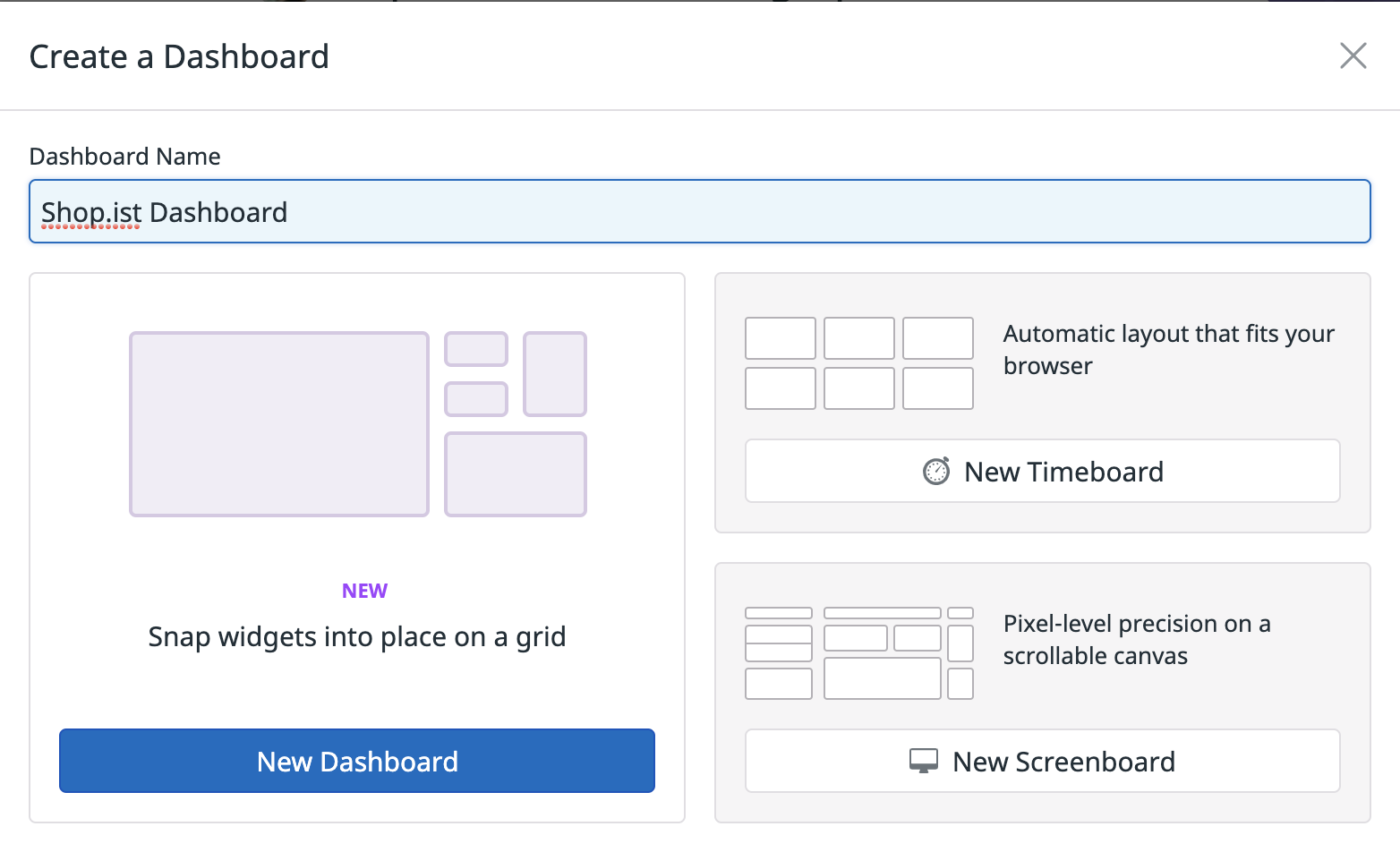- Essentials
- Getting Started
- Agent
- API
- APM Tracing
- Containers
- Dashboards
- Database Monitoring
- Datadog
- Datadog Site
- DevSecOps
- Incident Management
- Integrations
- Logs
- Monitors
- OpenTelemetry
- Profiler
- Session Replay
- Security
- Serverless for AWS Lambda
- Software Catalog
- Software Delivery
- Synthetic Monitoring and Testing
- Tags
- Workflow Automation
- Learning Center
- Support
- Glossary
- Standard Attributes
- Guides
- Agent
- Integrations
- Developers
- Authorization
- DogStatsD
- Custom Checks
- Integrations
- Create an Agent-based Integration
- Create an API Integration
- Create a Log Pipeline
- Integration Assets Reference
- Build a Marketplace Offering
- Create a Tile
- Create an Integration Dashboard
- Create a Monitor Template
- Create a Cloud SIEM Detection Rule
- OAuth for Integrations
- Install Agent Integration Developer Tool
- Service Checks
- IDE Plugins
- Community
- Guides
- OpenTelemetry
- Administrator's Guide
- API
- Partners
- Datadog Mobile App
- DDSQL Reference
- CoScreen
- CoTerm
- Cloudcraft (Standalone)
- In The App
- Dashboards
- Notebooks
- DDSQL Editor
- Reference Tables
- Sheets
- Monitors and Alerting
- Metrics
- Watchdog
- Bits AI
- Internal Developer Portal
- Error Tracking
- Change Tracking
- Service Management
- Actions & Remediations
- Infrastructure
- Cloudcraft
- Resource Catalog
- Universal Service Monitoring
- Hosts
- Containers
- Processes
- Serverless
- Network Monitoring
- Cloud Cost
- Application Performance
- APM
- APM Terms and Concepts
- Application Instrumentation
- APM Metrics Collection
- Trace Pipeline Configuration
- Correlate Traces with Other Telemetry
- Trace Explorer
- Recommendations
- Code Origins for Spans
- Service Observability
- Endpoint Observability
- Dynamic Instrumentation
- Live Debugger
- Error Tracking
- Data Security
- Guides
- Troubleshooting
- Continuous Profiler
- Database Monitoring
- Agent Integration Overhead
- Setup Architectures
- Setting Up Postgres
- Setting Up MySQL
- Setting Up SQL Server
- Setting Up Oracle
- Setting Up Amazon DocumentDB
- Setting Up MongoDB
- Connecting DBM and Traces
- Data Collected
- Exploring Database Hosts
- Exploring Query Metrics
- Exploring Query Samples
- Exploring Database Schemas
- Exploring Recommendations
- Troubleshooting
- Guides
- Data Streams Monitoring
- Data Jobs Monitoring
- Digital Experience
- Real User Monitoring
- Synthetic Testing and Monitoring
- Continuous Testing
- Product Analytics
- Software Delivery
- CI Visibility
- CD Visibility
- Deployment Gates
- Test Optimization
- Quality Gates
- DORA Metrics
- Security
- Security Overview
- Cloud SIEM
- Code Security
- Cloud Security
- App and API Protection
- Workload Protection
- Sensitive Data Scanner
- AI Observability
- Log Management
- Observability Pipelines
- Log Management
- Administration
Dashboards
Overview
The key to getting started with dashboards is knowing what kind of questions you ask yourself regularly. What are common issues your customers face? When a problem occurs, what questions help you find a solution?
Creating a good dashboard is about bringing the answers to these questions to the surface. Also, it is important not to cram all of those thoughts into the same dashboard. Creating separate dashboards to pinpoint different issues can help you quickly find your answers.
This guide gets you started on a path to creating dashboards. These basic dashboards enable team discussion and speed up issue resolution.
Create a dashboard
To create a dashboard, click +New Dashboard on the Dashboard List page.
Enter a dashboard name and choose a layout option.
- Dashboards
- A grid-based layout, which can include a variety of objects such as images, graphs, and logs. They are commonly used as status boards or storytelling views which update in real time, and can represent fixed points in the past. They have a maximum width of 12 grid squares and also work well for debugging.
- Timeboards
- Automatic layouts that represent a single point in time—either fixed or real-time—across the entire dashboard. They are commonly used for troubleshooting, correlation, and general data exploration.
- Screenboards
- Dashboards with free-form layouts which can include a variety of objects such as images, graphs, and logs. They are commonly used as status boards or storytelling views that update in real time or represent fixed points in the past.
Refresh rate
The refresh rate of a private dashboard depends on the time frame you are viewing. The shorter the time frame is, the more frequently the data is refreshed. Publicly shared dashboards refresh every thirty seconds, regardless of the selected time frame.
| Time frame | Refresh rate |
|---|---|
| 1 minute | 10 seconds |
| 2 minutes | 10 seconds |
| 5 minutes | 10 seconds |
| 10 minutes | 10 seconds |
| 30 minutes | 20 seconds |
| 1 hour | 20 seconds |
| 3 hours | 1 minute |
| 4 hours | 1 minute |
| 1 day | 3 minutes |
| 2 days | 10 minutes |
| 1 week | 1 hour |
| 1 month | 1 hour |
| 3 months | 1 hour |
| 6 months | 1 hour |
| 1 year | 1 hour |
Further reading
Additional helpful documentation, links, and articles:


